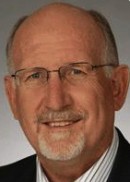Guest Column: Resist judging whole groups by despicable acts of some
 (Orlando Sentinel, August 16, 2015)
(Orlando Sentinel, August 16, 2015)
By James Coffin
Let’s move beyond labeling Muslims and other groups, and judge them as the individuals they are.
On July 28, a group of Muslims in Central Florida provided an impressive example of what relations should look like between a faith group and the larger community.
That day, the Orange County Board of Commissioners considered the final version of an application from the Islamic Center of Orlando to expand their mosque (Jama Masjid) and its associated amenities on the outskirts of Lake Buena Vista. Several people from the mosque and the surrounding community spoke.
“Initially, Jama wanted to do some things that were outside the norms [of the Buena Vista North Guidelines and Standards],” said Roy Messinger, co-founder of the Southern Dr. Phillips Homeowners Coaltion. “We had quite a bit of contention within the community…
“But I will tell you that this is one of those situations where we should all be proud. Because the applicant … did everything they could to work with our coalition and with the folks at the Hidden Valley Homeowners Association.”
Messinger described the “multiple private meetings” and the “collaborative effort over the past year or so,” noting that the consultations “resulted in a much better project for them. … We gave a lot of good insight, which they incorporated…
“We would urge you to vote yes.”
Messinger wasn’t the only community member who urged project approval and spoke highly of the Muslims’ interaction with the community.
“I appreciate all the comments from the residents,” said District 1 Commissioner Scott Boyd. “This was a good example of the community and the applicant working together, as well as our staff. So I want to congratulate everybody … and I would be happy to … move approval of the petition.” The motion passed unanimously.
However, the media took little notice of this highly positive Muslim story.
By contrast, both the mainstream and independent media took considerable notice — as they should have — when a 24-year-old Palestinian-American gunned down five servicemen at two military-recruiting stations in Chattanooga, Tenn., on July 16.
Various media quickly reported that the perpetrator was Muslim. What provoked virtually no comment was the fact that the perpetrator’s lifestyle — evidenced by his months-earlier DUI arrest and numerous allegations of illicit drug use — was diametrically opposed to the teachings of Islam.
A disturbing number of bloggers and commenters clamored for dramatic action against U.S. Muslims — ranging from stopping all Muslim immigration to deporting all Muslims to placing all Muslims in internment camps.
A common complaint was the alleged failure of moderate Muslims to speak out against such crimes — even though a cursory Internet search reveals quite a collection of strong denunciations of the Chattanooga murders by an array of Muslim organizations.
Every human grouping has members who are good and bad, virtuous and villainous, saintly and sadistic, heroic and hypocritical. Muslims are no exception.
Undeniably, deplorable evil has been perpetrated in the name of Islam. It has also been done in the name of Christianity, as well as in the name of virtually every other group — religious or secular. But we must resist judging whole groups by the despicable behavior of some.
I’m deeply concerned — as are all the Muslims I know — about the mind-twisted criminals, both here and abroad, who commit atrocities in the name of Islam. But I’m also concerned about the ready willingness of far too many to assume that all Muslims are therefore unworthy of the basic rights we as a nation declare to be God-given and inalienable.
I wish stories of the type that were told so eloquently in the Orange County chambers on July 28 would make it into media headlines to counterbalance the negative.
I wish that instead of damning all members of certain marginalized groups, we’d move beyond the all-inclusive labels and judge people as the individuals they are.
Finally, I wish that before propounding radical “solutions,” we’d seriously wrestle with two crucial questions:
How does my proposed solution honor the values on which this great nation was founded?
How does my proposed solution honor my own moral values?
James Coffin is executive director of the Interfaith Council of Central Florida.
